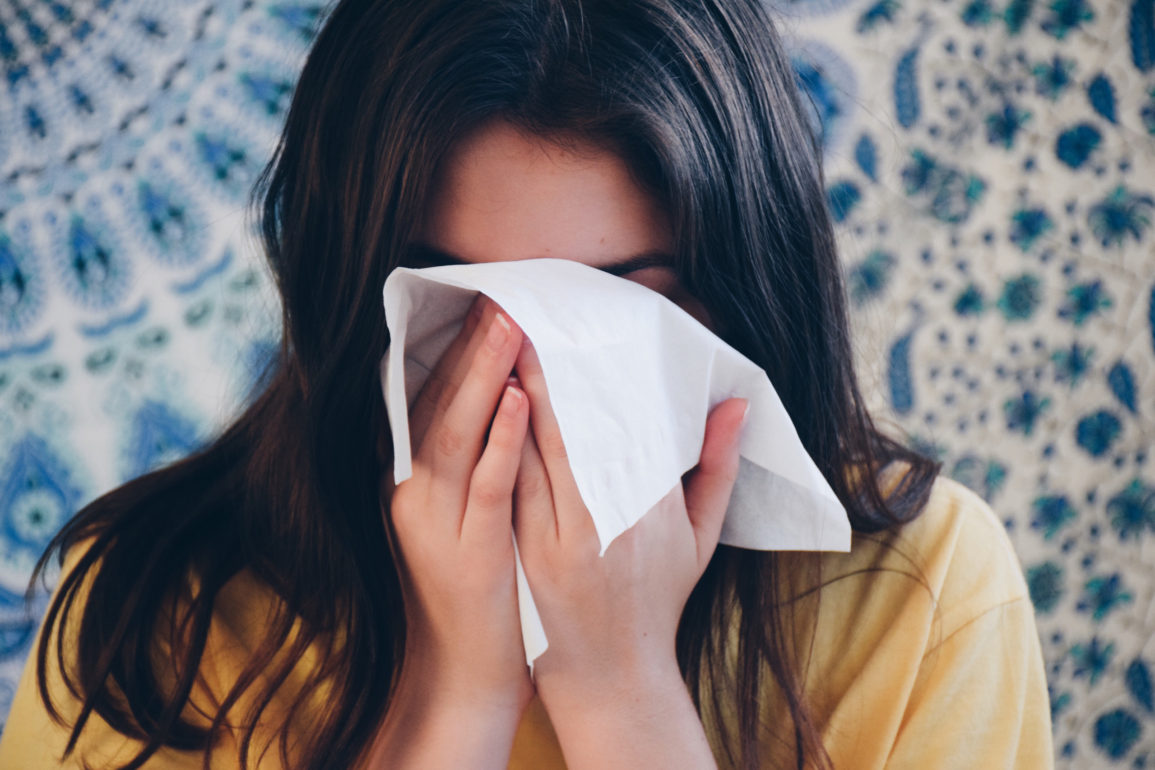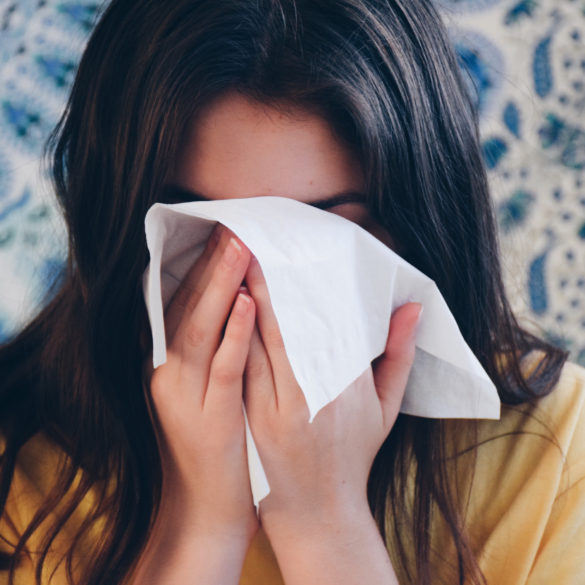Flu is an illness that humans are exposed to annually. It is caused by Influenza viruses that infects our bodies. It can be dangerous for babies, elderly people, people with certain chronic diseases, and people with weak immune systems. On the other hand, it causes mild symptoms and ends by itself relatively quickly for people who are not in the risk group. We should consider the illness period as a recovery process and be careful not to spread the illness to others while helping our bodies to recover. Because, essentially, our bodies treat itself in this process. In this article, you can learn what you can do to help your body during the illness period.
What You Should Do to Support Your Body When You Have Flu
Step 1: Rest

When you have flu, your body is in an active fight against the infecting viruses. It is normal that you feel tired and weak. One of the most important things that you can do in this period is doing nothing at all. If possible, stay at home and rest. Therefore, you don’t spread the illness and provide a resting opportunity for your body. Plus, you will have a plenty of time to spend for activities that you don’t normally find opportunities for such as reading books or watching movies.
Step 2: Take Medications Against Pain and Fever

During the Influenza infection, your body is a battlefield. It is quite normal that you experience pain and discomfort. Another common symptom is fever. Actually, fever is a strategy you body employs to fight with the virus. On the other hand, fever may be uncomfortable. You can take over-the-counter anti-inflammatory medications against pain and fever. Acetaminophen and Ibuprofen are some examples. Aspirin, another anti-inflammatory medication, shouldn’t be taken by people younger than 19 years old.
Step 3: Get Rid of Mucus

One of the most annoying parts of the flu is no doubt the mucus. It can make breathing, eating, drinking and talking harder, and it can cause a continuous discomfort. Moreover, if it is accumulated in your lungs, it can cause infections. To make it easier to cough up and spit out the mucus, consume plenty of liquids. Soups, drinks, water… If you have a serious expectoration problem, you can take expectorants. These medications may improve your cough, too.
Step 4: Use Nose Drops or Sprays

During the illness period, you nose may be seriously blocked. Nasal blockage causes discomfort and difficulty in breathing. You can use saline nose drops or sprays against nasal congestion. All you need to do is drop into one of your nostrils and then blow it gently. Then repeat it with the other nostril. These products are effective and safe.
Step 5: Use a Humidifier

The air inside your house may be too dry depending on where you live and the structure of your house. If the air is too dry, it can worsen your coughs and nasal congestion. If possible, use a humidifier in your home. But avoid using a device that produces warm mist.
Step 6: Ask for Antiviral Medication If You’re in the Risk Group

The flu may be risky for babies younger than 2 years old, elderly people older than 65 years old, people with certain chronic health problems and people with weak immune systems. It is advised that people in the risk group use antiviral medication. These drugs may make the symptoms milder and shorten the illness period. If you are in the risk group or you think you experience severe symptoms, consult your doctor. You should start taking these medications within the 48 hours of the first symptoms to get the best results.
Frequently Asked Questions
How can I Protect Myself Against Flu
Get vaccinated annually. Be careful about social distance and clean your hands using soap and water often, during epidemic periods.
Are Flu and Common Cold the Same?
Both of these are respiratory tract illnesses but they are caused by different viruses. Their symptoms are similar but flu is usually more severe than the common cold. While the common cold usually don’t cause serious health problems, flu can cause serious issues such as pneumonia.
What are the Symptoms of Flu?
The most common symptoms of flu are fever (not seen for everybody), sore throat, cough, muscle pain, fatigue, and chills. In some cases, vomiting and diarrhea may be present. In serious cases, difficulty in breathing and pneumonia may be present. Symptoms usually suddenly appear.
How Does Flu Spread?
Flu, primarily, spread by means of droplets from the coughs or sneezes of infected people. These droplets also transport the viruses on surfaces. When you touch these surfaces, viruses may first pass to your hand and then get into your body.
Do Flu Vaccines Certainly Protect Against the İllness?
No. The effectiveness depends on the type of the vaccine, the type of the virus that causes the epidemic that year, and personal characteristics. Studies show that getting vaccinated drops the infection risk 40% to 60% in the general population.





